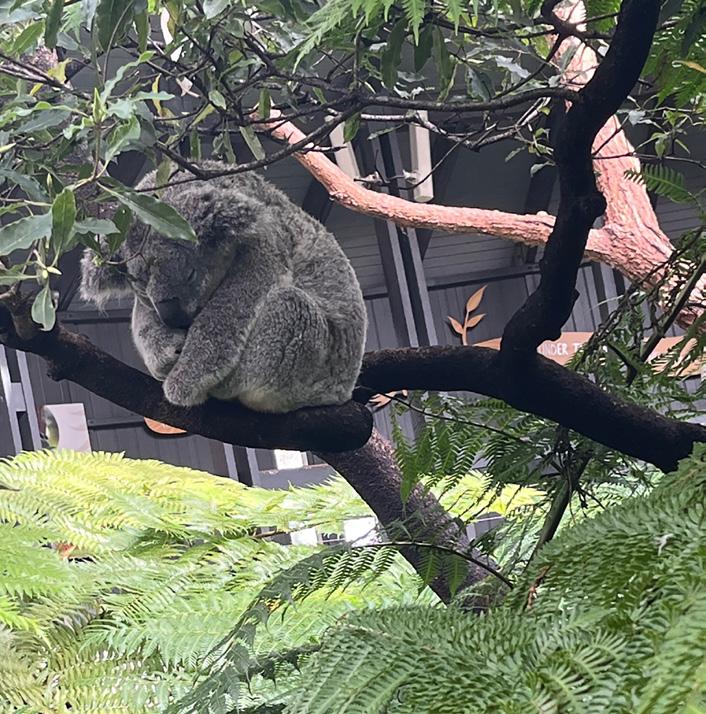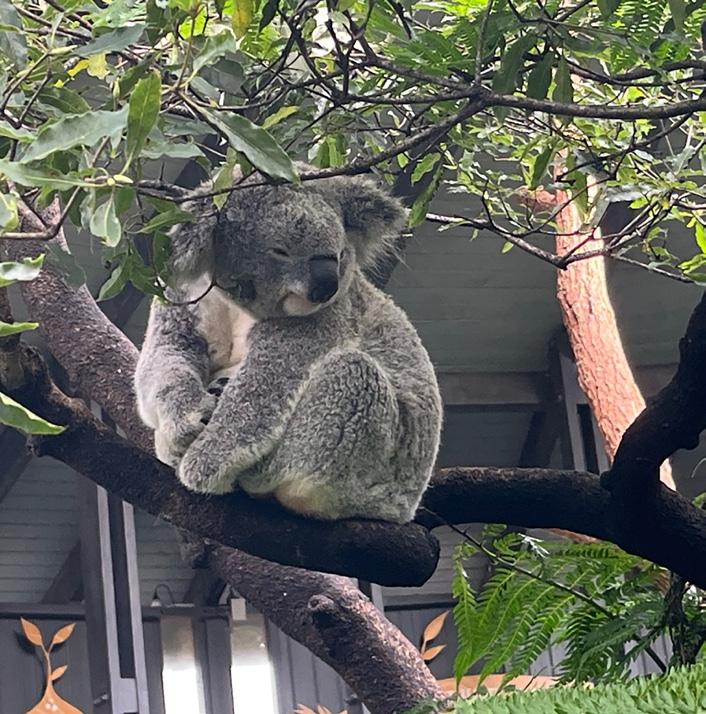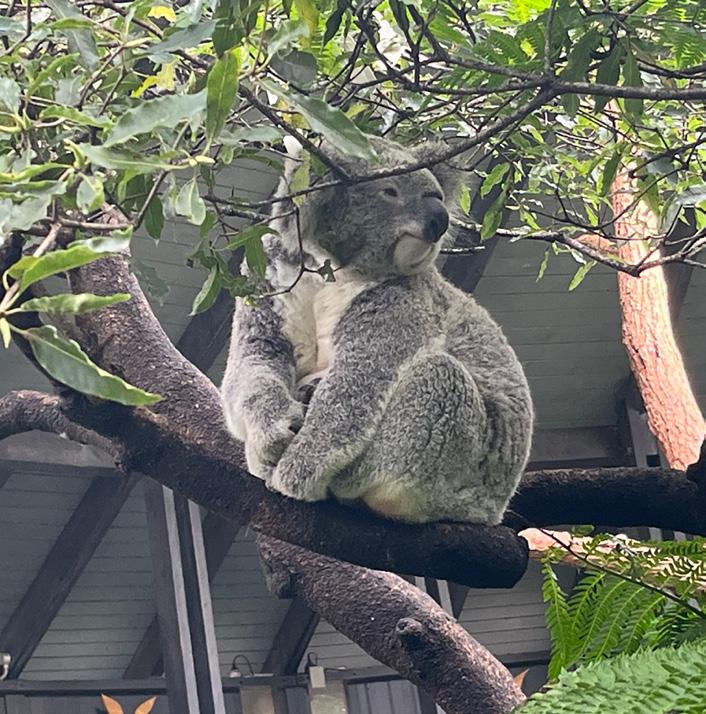
1 minute read
Koalas on the rise (hopefully
Article and photographs by Julia Bell
We are currently in our sixth mass extinction event, and as opposed to the past when a meteor wiped out the dinosaurs or the world was covered in ice, this one is kind of on us.
Advertisement
It is impossible to ignore the effects of climate change, habitat destruction, pollution, and every other catastrophe that is happening around the world right now. But just for a moment, the very brief moment you looked at this magazine and decided to gloss through the articles, we’re going to focus on how we are working to fix it.
Taronga Zoo is creating the world’s first koala breeding program with the aim of releasing koalas back into the wild. While conserving koalas has always been an important goal for Taronga Zoo, breeding koalas will increase their numbers in the wild. The dedicated 5000-hectare reserve will preserve the natural habitat that is lost due to urban development and the ongoing threat of natural disasters.
Koalas were declared endangered by Queensland, New South Wales, and the ACT in 2022, after declining in numbers over the past few decades. With the increase in habitat destruction from bushfires, koalas are disappearing even faster and are predicted to be extinct by 2050. With the rapid urban developments, koalas are not only losing their homes but are becoming more vulnerable to traffic conditions, as they’re forced to cross roads for food and shelter, noise pollution in suburban areas disrupting natural cycles to wildlife, and pets that may be aggressive to unknown animals. With land being changed for the needs of agriculture and population growth, preserving natural bushland should be a priority.
The NSW Government allocated $16 million to establish this koala reserve project, that is part of the NSW Koala Strategy with a funding of $193.3 million. This commitment is a promising step towards reserving some of the damage we caused, and eventually getting koalas off of the endangered list.
You can find out more about the NSW Government’s Koala strategy on the NSW Department of Planning and Environment website.












